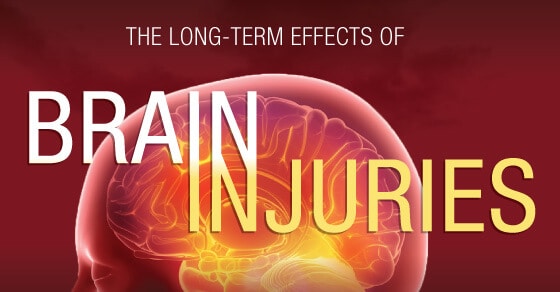
In 2002, medical examiner Dr. Bennet Omalu performed an autopsy on Pittsburgh Steelers’ legend Mike Webster following a heart attack. But it was what he found in the NFL Hall of Famer’s brain that led to a powerful discovery: Chronic Traumatic Encephalopathy, or CTE. The resulting tug-of-war between Dr. Omalu’s findings and the initial reaction of the NFL’s governing body is the basis for the recently-released movie Concussion. At the heart of the movie is the discovery that brain injuries can have serious consequences, many years after presumed healing took place.
However, the long-term consequences of a brain injury don’t just affect elite athletes; anyone who has had a concussion or other trauma to the brain is susceptible to issues in the weeks, months, and years following such an injury.
Causes of Brain Injury
You don’t even have to be an athlete – professional or otherwise – to suffer a brain injury. Anyone can suffer a head injury. Anyone can slip or trip, be struck on the head, or be involved in a traffic accident. In fact, the largest portion of head injuries stem from accidental causes:
- Falls 40%
- Blunt trauma 15%
- Traffic accidents 14%
- Assaults 10%
- Unknown/other 19%
After a Head Injury
Even a mild head injury can cause temporary brain impairment – foggy thinking, memory loss, headaches, dizziness, fatigue, depression, and irritability are not uncommon. The good news is, many will recover from such symptoms within two weeks after the injury.
But head trauma, whether mild or severe, and repeated injury can have long-term, lasting effects – some of which do not come to light until months or years later. The debilitating consequences of some head injuries can take a toll on quality of life many years after the injury was presumed healed.
The long-term effects of a brain injury can include:
- Physical – limited mobility, weakness or stiffness of limbs, paralysis, tremors, visual impairments, epilepsy, sensory issues, fatigue
- Cognitive – speech and language difficulties, memory problems, impaired reasoning, reduced attention span, reduced ability to concentrate, loss of knowledge and ability to learn
- Emotional – mood swings, personality changes, anxiety, depression, anger, impulsiveness, aggression
An individual with such impairments due to a head injury may find that they are unable to work to support their family, maintain their personal relationships, or even properly care for themselves. In fact, a single concussion makes an individual three times more likely to commit suicide.
Head Injury? Get Help!
Thankfully, individuals who have suffered a head injury don’t have to navigate the aftermath alone. There are numerous resources online that can help them and their loved ones to understand many of the issues they face. And if you have suffered a head injury that prevents you from working and taking care of your family, you may be eligible to receive disability payments through SSI. Be aware, however, that the application process for disability can be a lengthy one, and injuries such as a brain injury are often “hidden” disabilities with no obvious outward signs. It may be to your advantage to consult with an attorney who has experience with SSDI cases.
If your head injury was caused by someone’s negligence, an attorney with experience in head injuries can help you to preserve your legal rights. The attorneys at Gerling Law have extensive experience in head injury cases and the disability application process. Give us a call – it won’t cost you anything to see if we can help!
